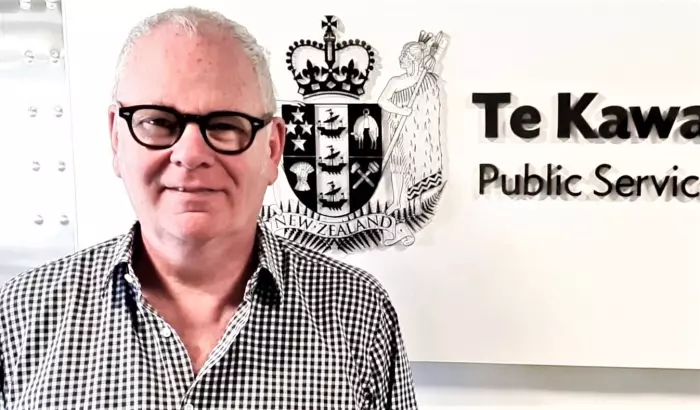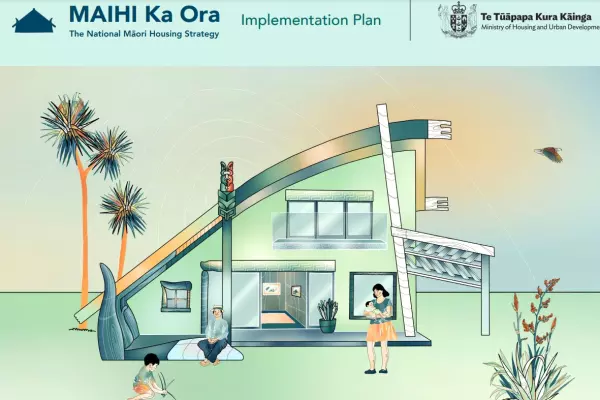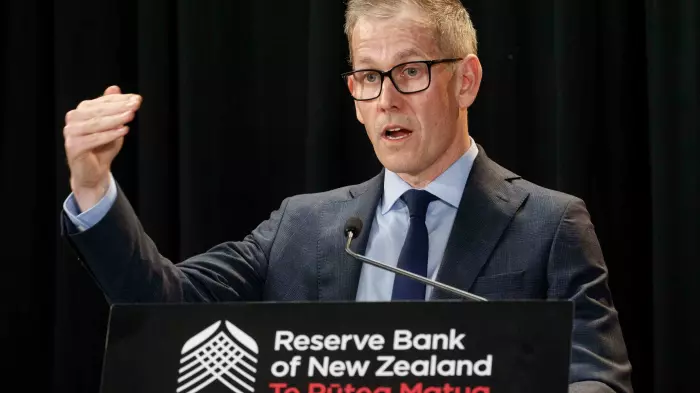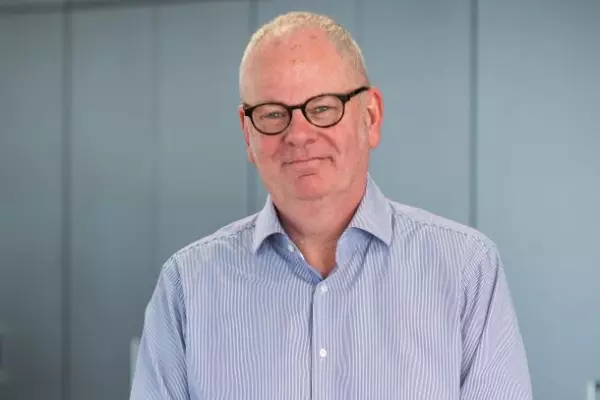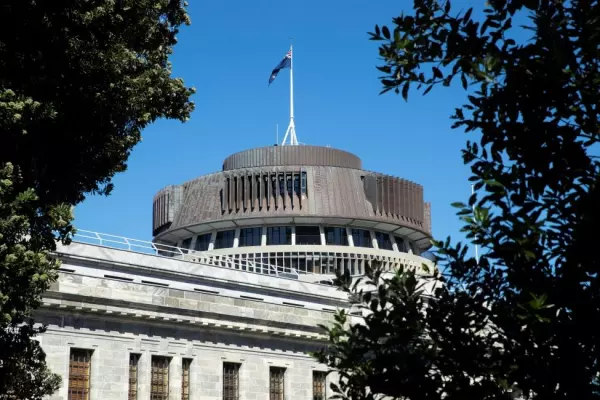“I say to them, ‘If a Martian arrives in Wellington Harbour wanting to come across the border, you're managing it'. The answer isn't ‘Oh, we don't do Martians’.”
So says public service commissioner Peter Hughes, summarising the role of the Border Executive Board. That's one of several new organisations that work across central government to solve New Zealand’s hardest problems.
“Before covid-19, we had half a dozen agencies each managing goods across the border, people across the border, biosecurity at the border, or security at the border.
“Under covid, we needed end-to-end border management, yet it's not possible to structurally integrate all that into one border agency. You would just end up with creating a whole bunch of other problems.
“So we put it all together under a board of six chief executives, and now that board does end-to-end management of the border,” Hughes told BusinessDesk.
The challenge of getting agencies to work better together is not new.
“Actually, every government arrives at that in my experience,” Hughes said. The Shipley government had ministerial teams, strategic result areas and key result areas. The Key-English government had Better Public Service targets that required several agencies to work together on specific goals, like improving NCEA success and reducing rheumatic fever.
Hughes lists other changes by each of his three predecessors aimed at enabling better inter-agency work.
Last year’s Public Service Act “is a bit of a step change” that builds off the previous attempts.
One difference from earlier approaches is that the government has formal powers to create executive boards on strategic issues, and Hughes is legally empowered to appoint CEOs to them. Their responsibilities on the executive board become part of their performance expectations, with Hughes as their employer.
The boards have direct accountabilities to Ministers – and, importantly, they also have their own budgets, approved by Parliament in the normal way, and can directly employ their own staff.
This is designed to avoid departments scrapping over which is going to give up how much money and how many staff for special projects.
Apart from the border board, an executive board on family violence and sexual violence was announced last week (morphing from a Hughes-chaired “joint venture” that began before the new act).
The reforms to the Resource Management Act are being led by a strategic planning reform board of six agencies, chaired by the environment ministry.
Similar new statutory arrangements are available as “interdepartmental ventures” on less complicated regulatory and operational matters.
None of this is easy.
In June, auditor-general John Ryan documented only uncertain progress after almost two years of the family and sexual violence joint venture.
“Public service chief executives are not used to leading each other,” Hughes explained.
“We don't have that history in the public sector. There's a reticence there.
“What I don't want is officials’ committees. These boards are purposeful, and they're trying to achieve something. So we're having to learn this."
CEOs aren't agents unto themselves. “These arrangements have to be replicated on the ministerial side. And that's a challenge. Ministers are not used to working in this way, either.”
Who’s accountable for what?
It remains to be seen whether their new legal status and resources will make cross-agency work more successful. Auditor-general Ryan has wondered aloud how CEOs can be held accountable for complex cross-agency work and also for managing their own departments.
Hughes said: “We don't have all the answers right now. But this resets the model so we can learn our way forward.
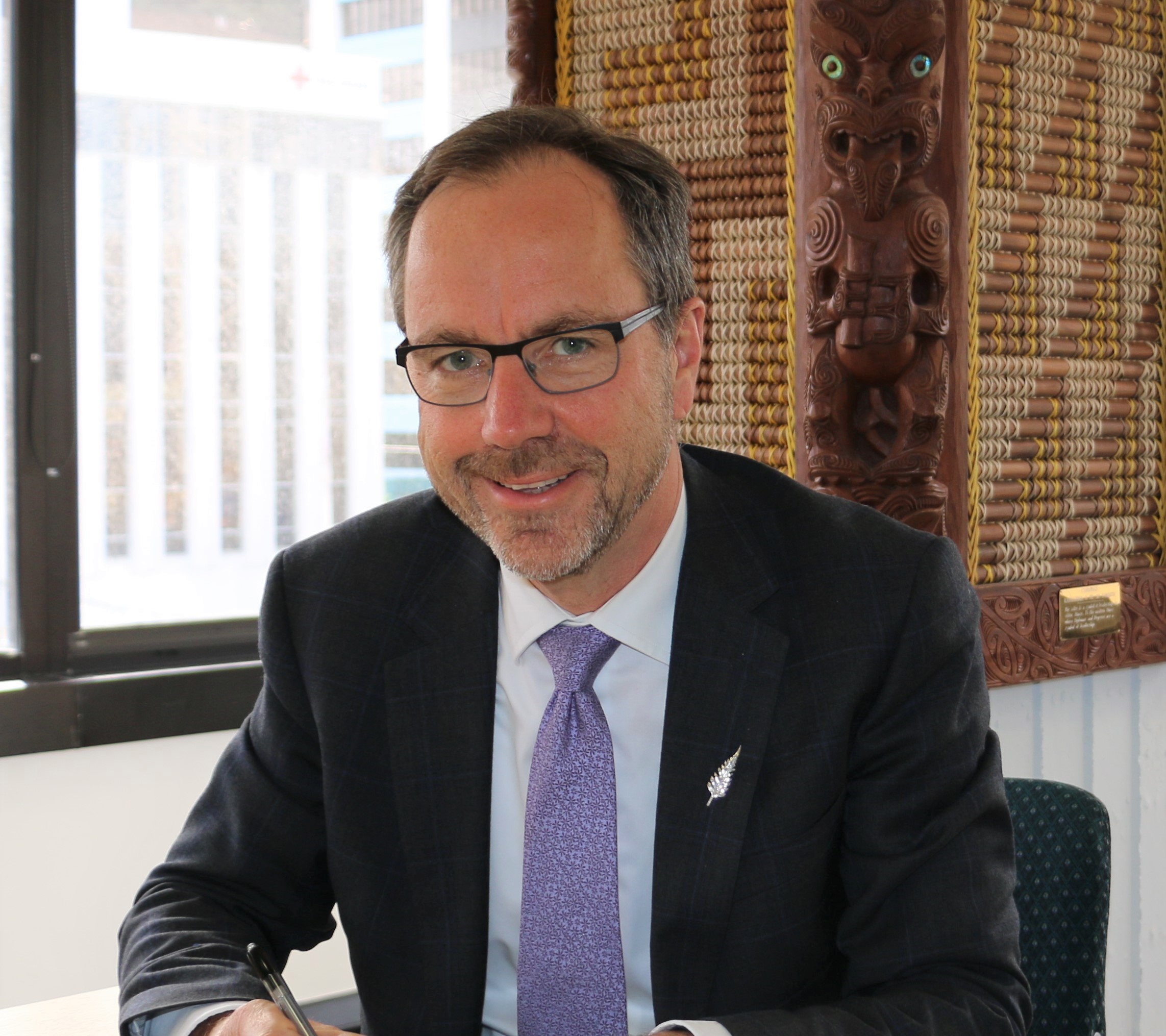 John Ryan: Who's accountable for what? (Image: Office of the Auditor-General)
John Ryan: Who's accountable for what? (Image: Office of the Auditor-General)“How does accountability work? You stay accountable for your department and what you're responsible for in your department to your responsible minister," Hughes said.
“Family violence stuff is right across government. The executive board brings all of that together in a single frame, a single, joined-up approach.
“We're not taking it out of the government departments, but we're trying to bring it together and achieve more alignment, more impact and more effectiveness.
“A family violence/sexual violence strategy will describe how that's going to happen. Each of those chief executives will be responsible for their bit of that to the minister, but they will be collectively accountable through the board chair for the strategy and for the implementation of the strategy.
“There will be detailed ‘This must happen by this date, these measures need to shift in this way’ stuff. It's a straight-line accountability to a single point, which is the board chair.”
Remembering the bad old days
The public service Hughes leads today was transformed by a revolution while he worked in it.
“I joined the public service in 1981. That was the public service of Roger Hall’s Gliding On – a classic bureaucracy with a standardised, rules-based approach. Consistency, equity of treatment, highly prescriptive, and a focus on inputs.”
That system had its place, Hughes said, because before the first Public Service Act in 1912, there was "patronage and corruption like you find in many third world countries today".
“So that public service model was an advance – the merit principle, equity of treatment, rules-based.
“In many third-world developing countries, that's what they're trying to achieve still. So, I don't disparage it too much,” Hughes said.
Fast-forward to the 1990s. “Off the back of an economic crisis, the Lange government undertook radical reforms, including of the public sector.”
The changes included the State Sector Act in 1988 and the Public Finance Act the following year.
They worked together to clarify lines of accountability to Ministers, better specify what taxpayers get for their money, and give CEOs autonomy to decide how to deliver. Decision-making in NZ's public sector became – and still is – among the most decentralised in the world.
“My personal experience was a huge unleashing of human potential," Hughes recalls.
“I was in the old Department of Social Welfare. We used to take six weeks to process a benefit application.
"You get unemployed, you come and you apply, fill out forms that go in the backroom – and it took us six weeks to process that and get back to you. During which time you've starved to death and all the rest of it.
“Hugely traumatic. We sap your confidence and then we say ‘Now get out in the labour market and find yourself a job’.
“As a direct result of the reforms, we went from six weeks to same-day, on-the-spot processing. You walk in, you walk out.
“Pretty much across the board that's what we saw in the public service – a massive improvement in the quality of service delivery. Huge, huge advances.”
Nonetheless, “A few babies were thrown out with the bathwater through those reforms," Hughes said.
And now this. “The world has changed.”
Let’s not go shopping
“Today, citizens expect to get their services joined up around them and their family, in a community setting,” Hughes said.
“They see ‘government’ as a single thing. They're not interested in shopping around government departments telling their story multiple times.
“These days you go online, you get what you want. It's joined-up around you.
“We in the public sector are not organised to do that … We are 42 individual agencies each entire unto itself. The chief executives are sovereign, and we all do things in different ways.”
Hughes cites the example of SmartStart, which joins up government services around the birth of a child.
Setting up SmartStart “was really hard to do, because this IT system was different from that IT system was different from that IT system.”
The service took about 18 months to create. “Twelve months was agreeing the interdepartmental arrangements. Six months was building the thing.
“The model doesn't support what citizens want in terms of service delivery,” Hughes said.
Let's join up
It gets harder still. “Citizens these days expect government to address some of the big issues – child poverty reduction, domestic violence reduction, child abuse and neglect, the environment.
“Pick anyone you want: there is no single agency that can deliver the change that government and citizens are looking for. The name of the game becomes getting joined-up across agencies and beyond,” Hughes said.
“The 1990s model doesn't support that way of working. We've outgrown the reform, so we needed to change the model. And that's what this” – tapping his personal copy of the new Public Sector Act – “starts to do.”
With the earlier reforms “there was a kind of currency given to what they’ve called neoliberal theory, 'new public management'.
“It was basically taking market discipline and trying to put them into public service, which actually is good.
“Yet we lost a sense of being part of a single service and all that goes with it.”
How’s your constitution?
Apart from the cross-agency ventures described earlier, the new Public Service Act gives legal weight to five “foundational principles”:
- politically neutrality.
- free and frank advice.
- merit-based appointments.
- open government.
- long-term stewardship of the public service.
Public servants are also required by law to adhere to specified values: impartiality, accountability, and being trustworthy, respectful and responsive.
The principles and values are “part of the constitutional infrastructure of our nation, part of the arrangements that support our form of democracy,” Hughes said. “We need to reassert them. With the market model, I think we lost some focus on that…
“The context has shifted. We have MMP politics. We have a lot more media scrutiny with social media. The way the media works is much more real-time. We have political advisers in ministers' offices, and we didn't use to have that.
"We need to keep up with the context.
"The act also talks about the spirit of service, which is the unifying thing. That's not just words. It has real practical impact.”
How’s your capability?
Finally, the public sector act requires the commission and government agencies to promote diversity and inclusion, and to “develop and maintain the capability of the public service to engage with Māori and to understand Māori perspectives”.
By contrast, “the old State Sector Act was completely silent on the Māori-Crown relationship,” Hughes said.
What remains to be done in Hughes’ remaining two and a half years in the job?
“I want to finish the reform. I think we'll get quite a distance. There is quite a lot of cultural change underway.
"You will hear people in the public service talk about the spirit of service. Whenever I talk about it, I have a hugely positive response. It's almost like I'm articulating something that everyone believes in.
“We are on a journey. We are much better.”
Do you know something we should know? Email BusinessDesk's public sector investigation team: [email protected].


